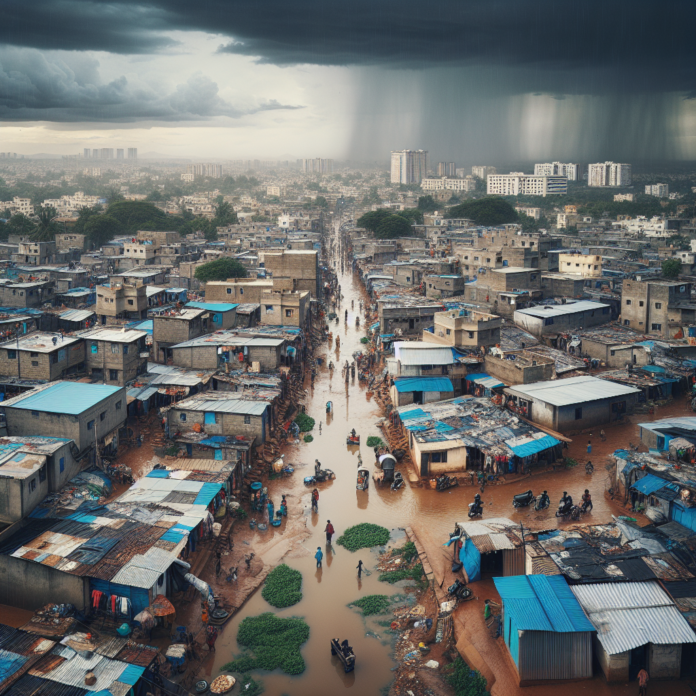Bengaluru’s Informal Settlements at High Risk of Severe Flooding
Urban Acres
Bengaluru’s Informal Settlements: A Growing Threat from Flooding
Bengaluru, often referred to as the “Silicon Valley of India,” is a vibrant city known for its booming tech industry and cultural diversity. However, this rapid urbanization has led to significant challenges, particularly concerning the informal settlements that dot the city landscape. These areas, often lacking proper infrastructure and planning, are increasingly vulnerable to severe flooding, a situation exacerbated by climate change and inadequate urban management.
The Impact of Urbanization
As Bengaluru continues to expand, the conversion of natural landscapes into concrete jungles disrupts the city’s drainage systems. Informal settlements, which house a substantial portion of the city’s population, are typically built on low-lying areas or along riverbanks, making them particularly susceptible to flooding. The encroachment on wetlands and natural water bodies further diminishes the city’s ability to manage excess rainwater, leading to increased flooding during monsoon seasons.
Climate Change and Extreme Weather
Climate change has intensified the frequency and severity of rainfall in Bengaluru. The city, once known for its mild climate, now experiences extreme weather conditions that catch residents off guard. The informal settlements, often lacking adequate drainage and sanitation facilities, suffer the most during these events. Floodwaters can inundate homes, displace families, and heighten health risks by contaminating water supplies with pollutants and waste.
Health and Economic Consequences
The flooding of informal settlements does not only pose an immediate threat to safety but also has long-term health implications. Waterborne diseases, such as cholera and dengue fever, see a spike in the aftermath of floods, putting additional strain on an already overburdened healthcare system. Economically, residents of these settlements often rely on daily wages, and flooding can result in significant income loss, pushing families deeper into poverty.
Community Resilience and Adaptation Strategies
Despite the challenges, many communities are taking proactive steps to build resilience against flooding. Local organizations and NGOs are working to educate residents about disaster preparedness and response. Initiatives include the construction of temporary shelters, the establishment of community-led drainage management systems, and workshops on health and hygiene during flood events.
Moreover, the government is being urged to invest in better infrastructure and urban planning that recognizes the needs of informal settlements. Strategies such as improving drainage systems, restoring natural water bodies, and implementing sustainable land use policies are critical to mitigating flood risks.
Collaborative Efforts for a Safer Future
Addressing the flooding crisis in Bengaluru’s informal settlements requires collaborative efforts between the government, NGOs, and the communities themselves. By fostering partnerships and prioritizing inclusive urban planning, the city can work towards creating safer living conditions for its most vulnerable populations.
In conclusion, while Bengaluru’s informal settlements face severe flooding risks, there is hope through community resilience, improved infrastructure, and a commitment to sustainable urban development. The path forward hinges on recognizing the unique challenges these populations face and taking concerted action to protect them from the impacts of climate change and urbanization.
